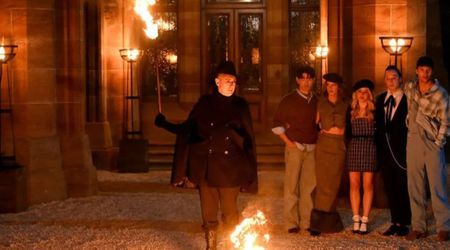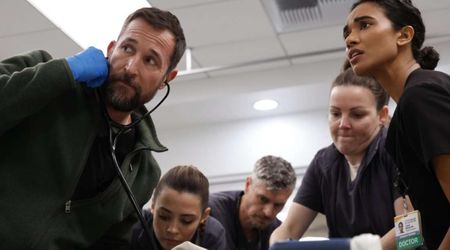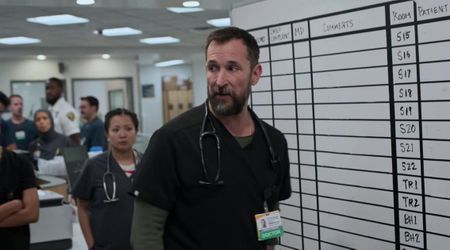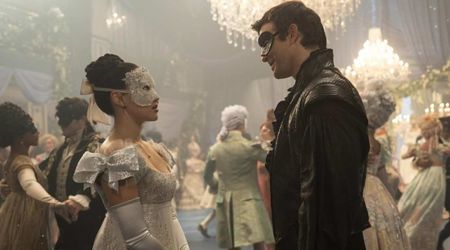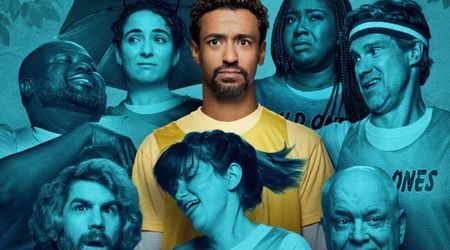'Biohackers' Review: Netflix's German sci-fi thriller about genetics versus humanity is actually a teen melodrama

Spoilers for 'Biohackers'
Who says love triangles and gene trials don't go hand in hand. There's a certain ring to it, right? There's a certain sacrilegious thrill in mingling the both that seems suited for a classic concoction of TV procedurals that one could be enticed by on a weekly basis, to be marinated and deep-fried in for just one day alone, not to be touched again for a week. But along with the wonders of streaming comes this intense compulsion to binge, and that concoction is simply not suited for a minimum of six to eight hours at a stretch. Perhaps that's the problem with Netflix's new German sci-fi thriller 'Biohackers' that simply couldn't have arrived at a worse time than months following the final season of the genre phenomenon 'Dark' premiered.
The six-part series is more 'Twilight' or 'Vampire Diaries' than what one would expect a sci-fi thriller to be. It kicks off with an impeccable cold open the way SyFy's 'Nightcrawlers' did and we all know why that ended with a supposed second season getting canned. In that, 'Biohackers' tries to strike the signature question of moral compass vs. scientific progress and ends won the most blatant segue for a second season. But the question is, why would anybody want to find out?
Testing the waters of genre-bending action is fun, but not when there's melodrama all over. After being orphaned in a car crash when she was a child, young medicine-whiz Mia Ackerlund (Luna Wedler) grows up to join a prestigious university in a new city. She immediately sparks tension with renowned geneticist Dr. Tanja Lorenz, who is constantly intrigued by and encouraging of Mia's out of the box approach. Mia uses Lorenz's assistant and fellow student Jasper (Adrian Julius Tillmann) as a romantic ploy to get into Lorenz's lab for some reason, but she is also simultaneously very distracted by her boy toy's dark and brooding roommate Niklas (Thomas Prenn).
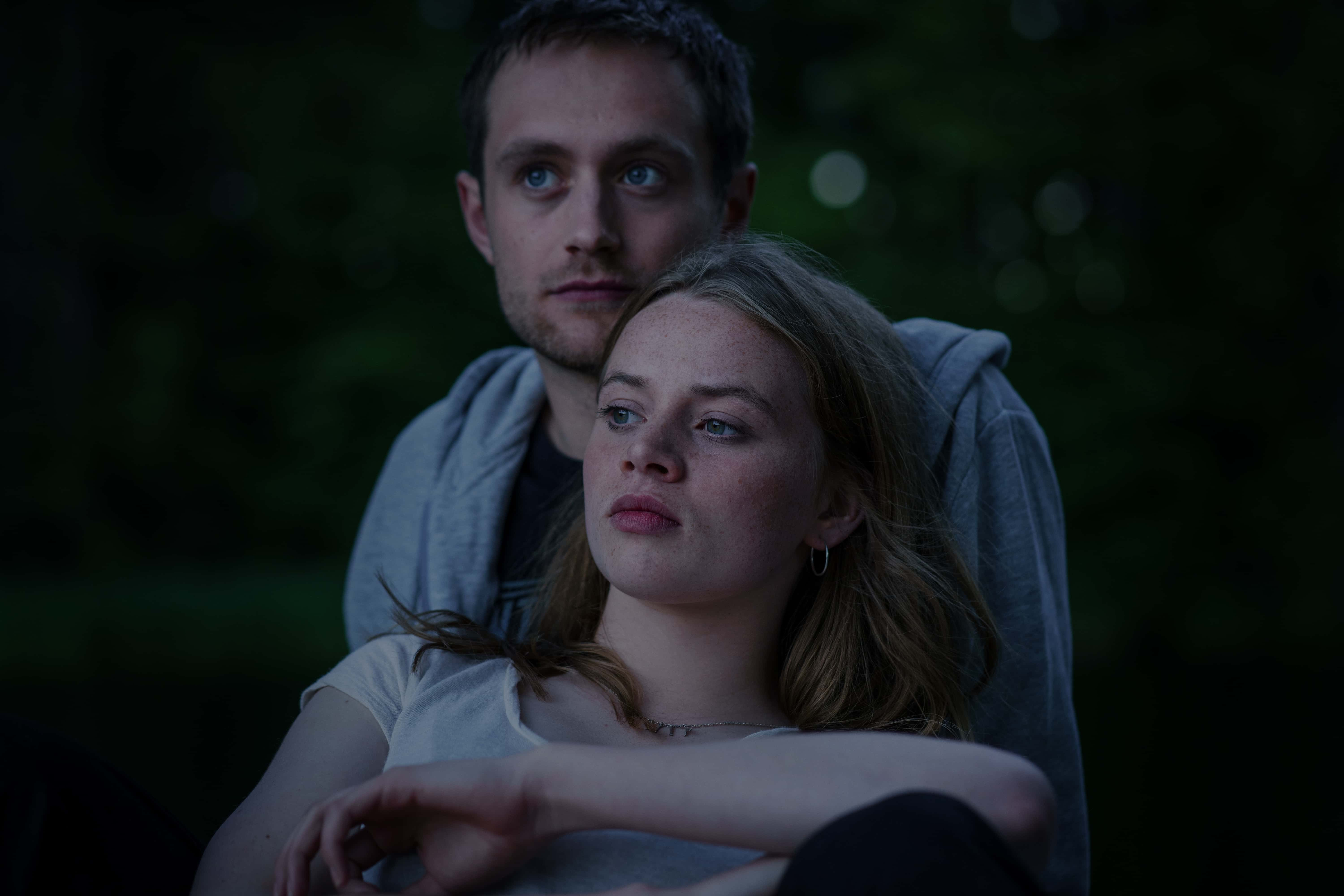
Soon Mia's intentions are revealed when episodes later an extended flashback of the cold open reveals she is actually Emma Engels, one of the 200 children genetically made sick to be experimented on by Lorenz. Her twin brother Ben had died along with every other child who was tested on, except Emma. The car crash her parents had died in was done by Lorenz too, and once older, Emma was mysteriously propositioned by a friend of her father's to hack into Lorenz's work and out her to the world. But Emma's plans not only have loopholes conveniently molded to aid the plot but also love triangles spurring our heroes and antagonists to spin into action instead of the simple fact that a psychopath is killing innocent people.
Instead, when Jasper finds out about Emma and Niklas working together, he goes rogue and tries to kill them via genetically modified mosquitoes that he sets free on the train they are in. But Emma and her friends save the day, of course. When not focussing on Emma's cluster of four oddballs for housemates, prodigally creating antibodies of diseases they have literally just found out about, the film also deviates from its sci-elements to show what might be the only entertaining bit about the plot.
The slice of life portrayals of these superheroes Emma calls roommates is dorky and nerdy enough to earn a chuckle or two out of sitcom lovers who have been long entertained by the low hanging picks of 'The Big Bang Theory'. There's the undeniably hot and inexplicably smart Lotta, the speedy Chen-Lu who had modified piano plants and sparks a romance with their third roommate, the clout seeking weirdo Ole, who doesn't mind slicing his midriff open for followers on YouTube.
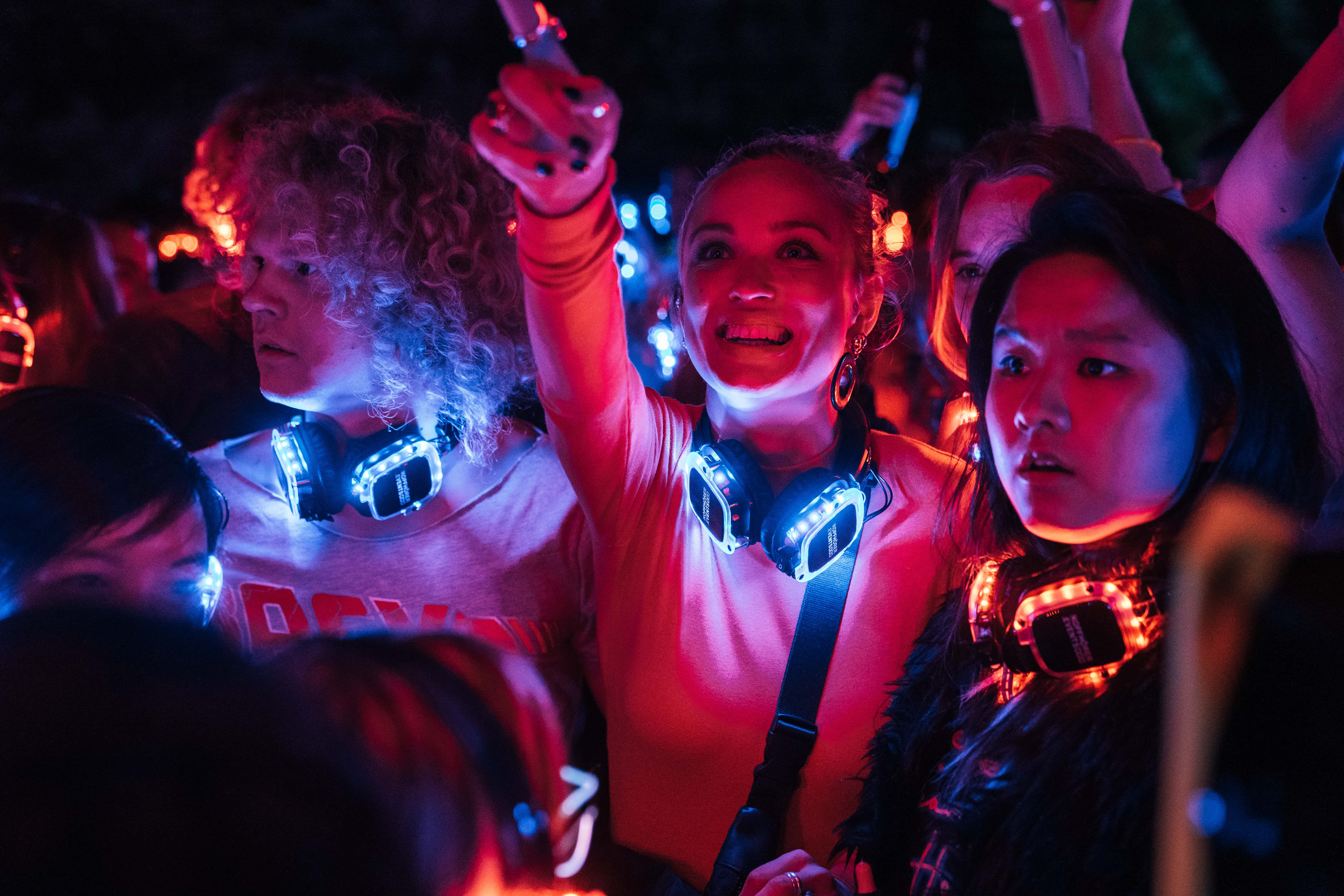
The sci-fi aspect is more explored with the kinds of drugs and intoxicants they can be used to dabble in than any progress that's not illegal. Think underwater pills that help you hold your breath longer, beers that kick you "mega crazy", luminescent marijuana that leaves dusty traces behind to get yourself bused. It's hilarious, convenient, and a little unrealistic, and perhaps the individual frustration against each of these characters is pointed out best by another of them. The way Lorenz tells Emma "You have time for that?" when she goes to a party and Emma telling the mostly-topless Lotta to dress like a normal person for a change will leave you snorting, but also wondering wait wasn't that slut-shaming?
That's the problem with 'Biohackers'. It attempts and treads into more genres than it has business going in and then gives a teen drama that sometimes gets just as ridiculous as 'Pretty Little Liars'. It is revealed in the end that Emma survived as the only successful trial of the project - Homo Deus, and is now a superhuman immune to everything. She bargains the antidote from Lorenz and cures more innocent people who had been attacked. Jasper's rejection aggression also tumbles down and he agrees to help Emma by sending her details of every single child who had died of the experiment. But of course, there's a catch in the tail, and Emma and Lorenz both come together in the final moments. Only this time, they are both victims at the hands of someone else.
It's impressive how the spacey saga ended on a note that screams stay tuned for season 2. Usually, there's a certain closure in open endings that one can rely on, but this is a finale that one would end a regular episode on. The attempt to tease is too real and too blatant, but unfortunately, the story of Emma's revenge just doesn't captivate enough to keep us craving answers.
Writer-director Christian Ditter who is known for some very popular 2000 romcoms 'Love, Rosie' and 'How to be Single' shines in moments where elements of romcom find their way into the thriller. Other than that, it's gripping only when the ethical confrontations arise amid the poor character-work and fairly average acting. And sadly, those moments, although riveting and fun to experience, are few and far between.
'Biohackers' is now available for streaming on Netflix.

